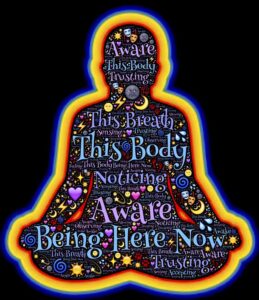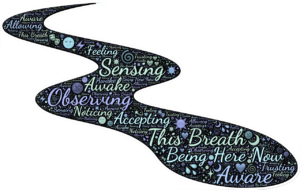I just watched a 35-minute interview with Dr. Kristin Neff last night on the importance of self compassion. I found it fascinating because it is something that I realize I myself have been struggling with. Often, we have great compassion for others, but do not apply the same degree of compassion to ourselves. This summary will define both self criticism and self compassion, give the science and effects behind each as well as the steps to shift to self compassion daily. Please share in the comments below if this subject gives you any “aha” moments like it did for me.
Self Criticism Awareness
First, we must be mindful and aware of the criticism occurring. Then we must have compassion for the voice that is criticizing us trying to keep us safe. It is trying to motivate us, but we need to realize it is not an effective approach.
Once we notice we are critical:
We then need to bring in compassion for this critical voice. To be compassionate to that inner voice, we need to start asking: “Why is that critical voice there? How is it trying to help me? Can I understand where it comes from? How is it trying to keep me safe?” If the self critic doesn’t feel heard or honoured for what it is doing, it is going to keep trying to shout out to you.
The science behind self criticism
If you look at self criticism, physiologically, it taps into the threat defense system (reptilian) and triggers the amygdala. It then releases cortisol and gears us for the flight, fight or freeze response. This system was designed to deal with a threat like a lion chasing us. When we see a flaw in ourselves, we feel threatened, attack ourselves, release cortisol and adrenaline to try to motivate ourselves to deal with this problem, all in an unconscious attempt to keep ourselves safe.
 The science behind self compassion
The science behind self compassion
What self compassion does is moves our sense of safety from the reptilian threat defense system to the mammalian caregiving system. This mammalian system was designed to keep ourselves safe and is rooted in oxytocin and opiates. For a mammal to feel safe, when they are young, they respond to close, warm, connection, self touch, and especially physical warmth from the mother. This in turn releases the hormones that lower cortisol levels and activate the parasympathetic nervous system to help calm down.
Self Criticism vs Self Compassion
So we really have 2 safety systems. Both self criticism and self compassion are systems designed to help us feel safe. The problem is with self criticism we are tapping into an ineffective system that was designed to be great for running away from lions, but terrible for when you are feeling bad about yourself because it makes us depressed, it makes us feel worse, and it is not very effective. When we move our sense of safety to a feeling of compassion, care and love for just the way we are, everything shifts. Research shows that when you give yourself compassion, you lower your cortisol levels associated with self criticism, so you are changing physiologically as well as mentally and that is why it is so amazingly powerful.
 How can we shift from self criticism (Reptilian system) to self compassion (Mammalian system)?
How can we shift from self criticism (Reptilian system) to self compassion (Mammalian system)?
One of the quickest and easiest ways to switch is to take a Self Compassion Break which can be done in as quick as a minute. It is a physical gesture of affection with warm soothing, comforting words, tone and touch.
For example: Think of something causing you suffering right now. Put your hands-on heart. Feel the warm response of your hands and say positive phrases like: “This is really hard right now. I am not alone in my suffering. May I be kind to myself in this moment and give myself the compassion I need.”
There are 3 Main components of this Self Compassion Break:
- Self Kindness – use words that you would use with a child or your best friend who is suffering
- Sense of Common Humanity- everyone suffers, is flawed and imperfect, fails, makes mistakes – that is what it means to be human. You are not alone.
- Mindful of our suffering instead of running away from it – The feeling of isolation that comes when we feel inadequate is one of the huge reasons it is so debilitating. Evolution-wise, if we were rejected from the group, we were food for the lions. So that feeling of disconnection is incredibly frightening.
Physical warmth with words of love and care in a soothing tone of voice will immediately cause you to activate the parasympathetic  nervous system, lower your cortisol, and calm down, making everything more workable. It is easier than you think…you just must remember to do it and practise it in daily situations so that it becomes a habit.
nervous system, lower your cortisol, and calm down, making everything more workable. It is easier than you think…you just must remember to do it and practise it in daily situations so that it becomes a habit.
When we are critical of ourselves, it reinforces our illusion of control. We are also critical because we think we need that to motivate ourselves. You can motivate yourself with compassion instead. If we are not reaching a goal that is important to us, that is possible, then we are going to suffer. If we love ourselves and care about ourselves, we are going to want to do everything we can to reach our full potential. So, compassion, support, love, and kindness are an amazing resource for motivation. We just are not in the habit of using it for ourselves…even if we are in the habit of doing it for other people.
If you would like to see the Tedx Talks on this subject, you can go to the 7-minute mark where Dr. Neff starts to speak specifically about self compassion: https://www.youtube.com/watch?v=IvtZBUSplr4
 Self compassion is a personal journey. Everyone needs self compassion. By being compassionate to ourselves first, we will then have more compassion to offer to others. This is not selfish; this is self care.
Self compassion is a personal journey. Everyone needs self compassion. By being compassionate to ourselves first, we will then have more compassion to offer to others. This is not selfish; this is self care.
Here is to each of us making it a habit to bring compassion into our life each day.
Great article, Susanne! This is something where I definitely can be better. Using compassion to motivate myself is not something that I practice. This would be a shift in thinking. I will certainly give this thought and practice.
Thanks so much Peter. This is something I need to practice as well…and yes, it is a total shift in thinking. When we are aware of what we are doing, we can make changes. Be gentle on yourself and practice compassion to the max! 😉
Thank you so much. Perfect timing. I tend towards enthusiasm in every opportunity that enters my awareness. Often this becomes overextension, leading to guilt ridden decisions of which activity to forego daily…with the domino effect of lessening the enjoyment in the winning decision. I will now be compassionate with myself as you recommend.
Glad to hear that it came at the right time 😉 Be gentle with yourself always. Warm regards.